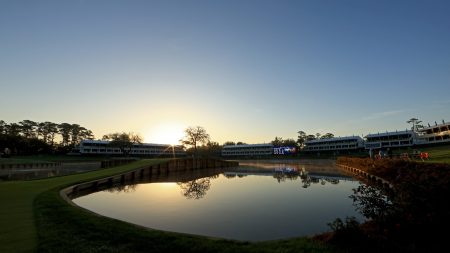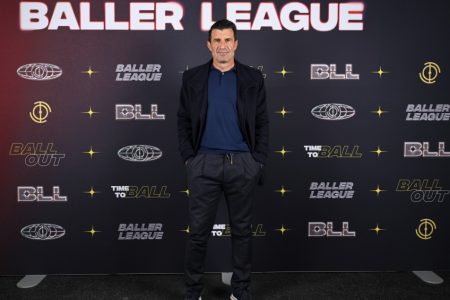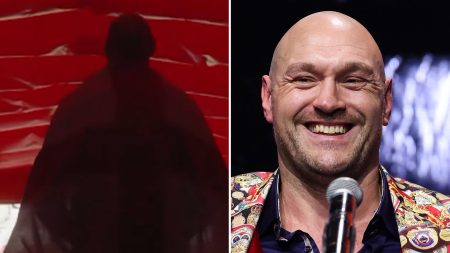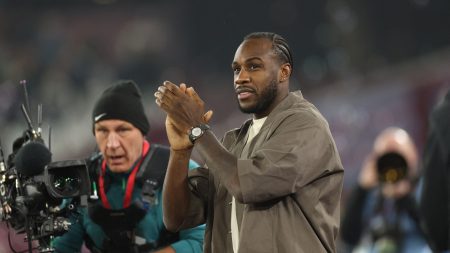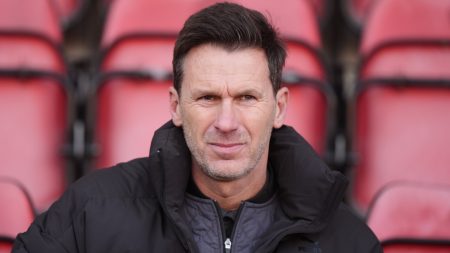Arsenal Football Club, currently navigating the challenging waters of the January transfer window, finds itself in a precarious position. While the club’s ambitions are high, the reality of securing the necessary reinforcements to bolster their squad remains elusive. Manager Mikel Arteta, the orchestrator of Arsenal’s tactical maneuvers, has publicly emphasized his continuous dialogue with the club’s ownership, highlighting the collaborative effort to address the team’s evolving needs. This constant communication underscores the urgency of the situation, as Arsenal seeks to capitalize on the transfer window opportunity to strengthen their ranks for the remainder of the season. The presence of co-chairman Josh Kroenke in the UK further emphasizes the club’s commitment to addressing the pressing need for reinforcements.
Arteta’s candid acknowledgment of recent setbacks, including injuries to key players, sheds light on the challenges confronting the club. These unforeseen circumstances have disrupted the team’s rhythm and exposed vulnerabilities within the squad. The manager’s emphasis on the supportive nature of the ownership suggests a unified front in addressing these challenges and seeking solutions to bolster the team’s prospects. The search for a striker, a critical position in need of reinforcement, has intensified, with names like Marcus Rashford, Dusan Vlahovic, and Benjamin Sesko circulating in the rumor mill. However, the absence of concrete developments indicates the complexities of the transfer market and the intricacies involved in securing top-tier talent.
The pursuit of a striker underscores Arsenal’s ambition to bolster their attacking prowess and enhance their goal-scoring capabilities. The absence of a consistent and reliable goalscorer has been a recurring concern for the Gunners, hindering their ability to consistently convert opportunities and compete with the league’s top contenders. The linked players represent a range of profiles, from established Premier League performers like Rashford to emerging talents like Sesko, indicating the club’s willingness to explore various options to address this critical need.
Arteta’s response to questions regarding the ownership’s backing reveals the pragmatic approach adopted by the club’s management. The focus, as articulated by the manager, is on making strategic decisions that align with the team’s needs and enhance its overall performance. This measured approach prioritizes the long-term interests of the club and emphasizes the importance of making prudent investments that contribute to the squad’s overall improvement. The emphasis is not merely on spending for the sake of spending, but rather on acquiring players who can seamlessly integrate into the team’s system and elevate its collective performance.
The current situation presents a delicate balancing act for Arsenal. The desire to reinforce the squad is evident, but the club remains committed to responsible financial management and avoiding impulsive decisions. The January transfer window, notorious for its inflated prices and frenzied negotiations, demands a strategic and calculated approach. Arsenal’s management must carefully assess the available options, weigh the potential benefits against the financial implications, and make informed decisions that align with the club’s long-term vision.
The coming days and weeks will be crucial for Arsenal as they navigate the intricacies of the transfer market. The pressure to secure reinforcements is mounting, but the club’s leadership remains steadfast in their commitment to making sound decisions that will benefit the team in both the short and long term. The fans, eager to see their team strengthened and ready to compete at the highest level, await with anticipation the outcome of the club’s efforts in the transfer window. The overarching objective remains clear: to build a squad capable of achieving sustained success and challenging for honors.






